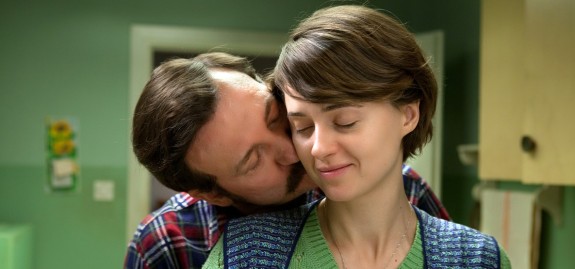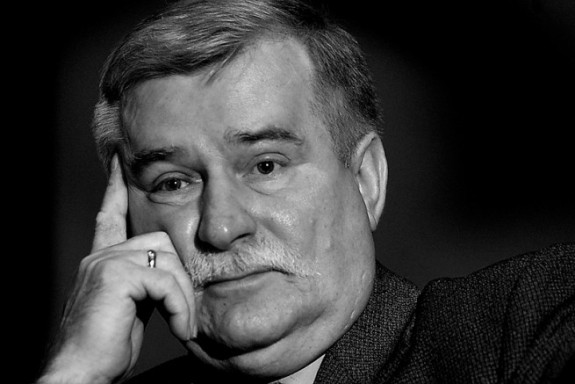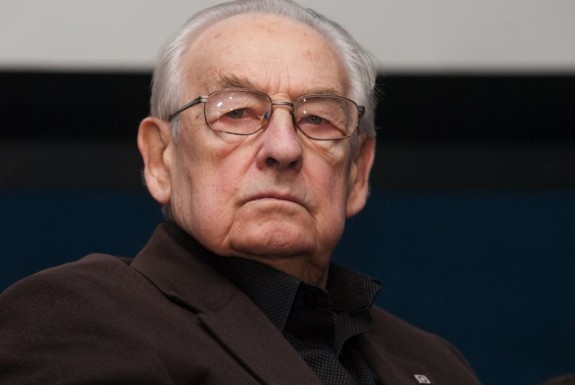Lech Walesa’s astonishing rise to prominence as a modern Polish hero is chronicled with verve and vivacity by Poland’s greatest living film director, Andrzej Wajda, in Walesa, Man of Hope.
In sweeping fashion, Wajda charts his historic journey from shipyard electrician and Solidarity trade unionist to political activist, Nobel Prize laureate and power broker.
The 128-minute movie, in Polish with English sub-titles, will be screened by the Ekran Polish Films Association on Jan. 18 at 6 p.m. at the Bloor Hot Docs Cinema.

Wajda uses an effective technique to advance the story line, which takes place over a nearly 20-year period that ends before he assumes the presidency of Poland. The famous Italian journalist, Oriana Fallaci, played with gusto by Maria Rosario Omaggio, interviews Walesa after he has become something of a household name and celebrity in Poland and abroad. As he cantankerously and humourously recalls the events that catapulted him to stardom, his career as a Polish national icon unfolds with the assistance of old newsreel footage.
Walesa, who played a key role in Poland’s startling transformation from Soviet bloc communist state to pro-Western democracy, is seen as a simple yet determined and charismatic man of faith who risked life and limb to defy the Polish government.
Robert Wieckiewicz, in a stellar performance, portrays Walesa as a down-to-earth, devoted family man who thinks nothing of washing his wife’s foot before he heads off to work at the Lenin shipyard in Gdansk. Walesa is there when an unprecedented strike breaks out on Dec. 13, 1970. Arrested by the police, he`s accused of being a counter-revolutionary and traitor, when in fact he`s merely a worker fighting for his basic rights.

After his release, he returns to his old job, his righteous indignation aroused by his perception that management cares far more about the anti-imperialist struggle overseas than about workers`safety in Poland. To Walesa, the Solidarity trade union is about combating injustice and defending workers rather than about changing the political status quo in Poland.
Walesa`s high-profile position within the union brings him to the attention of the authorities, who track his movements, harass him, continually arrest him and arrange for his dismissal from the shipyard. Danuta (Agnieszka Grochowska), his loving but long-suffering wife and the mother of his growing brood of children, finds it increasingly difficult to cope with the tensions brought to bear on her family. Grochowska acquits herself exceedingly well in this demanding role.
Walesa comes under increasing pressure to “cooperate” with the government, but he flatly refuses. “I’m not afraid of the consequences,” he declares. Indeed, he grows in stature as the challenges mount, discovering that his oratorical and organizational skills are great assets.
The film moves along at a rapid clip — documenting the 1980 sit-down strike in Gdansk that forced management to accept workers’ demands for better conditions, the nascent alliance between Polish intellectuals and workers, the coal miners’ show of support for the shipyard employees, the new-found interest of foreign correspondents in Solidarity’s struggle, and the government’s acceptance of the right of workers to strike.
Walesa also documents the imposition of martial law in Poland in Dec. 1981, the re-incarceration of Walesa, the honor bestowed upon him by the Nobel committee, and the role he played in the 1989 round table talks, which led, at last, to free elections in Poland.

Walesa’s speech to the U.S. Congress, in which he describes freedom as a “human right” to a burst of applause, rounds off Wajda’s well-crafted movie quite nicely and appropriately.